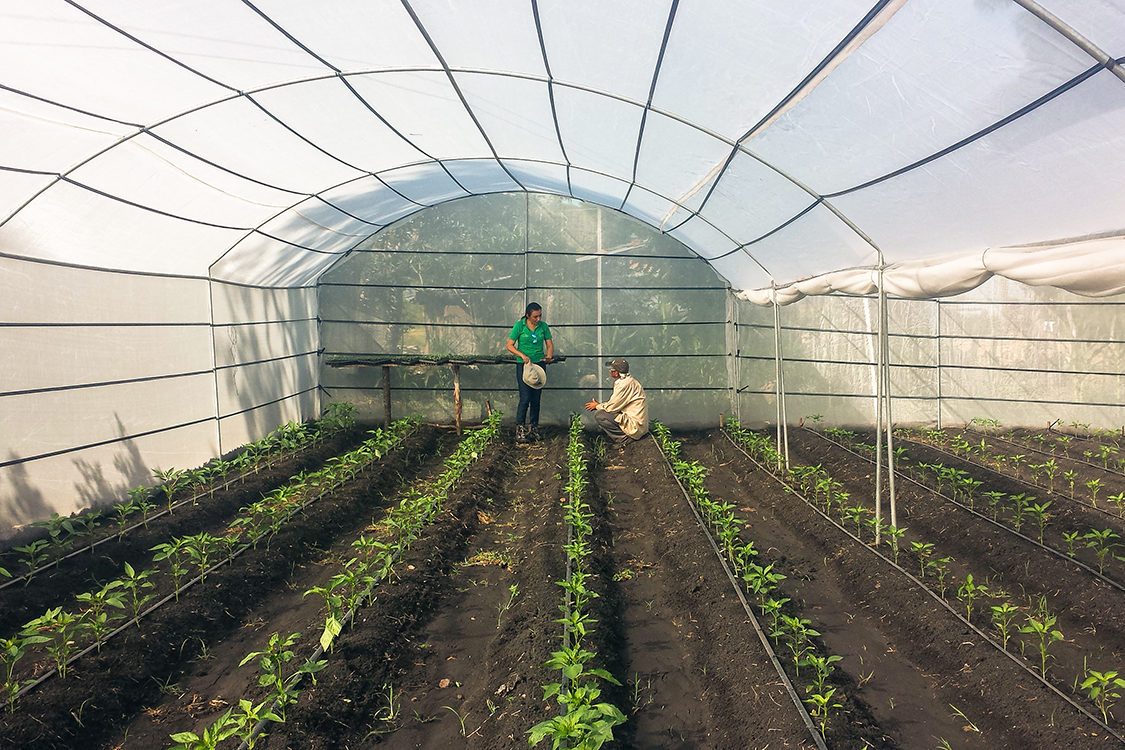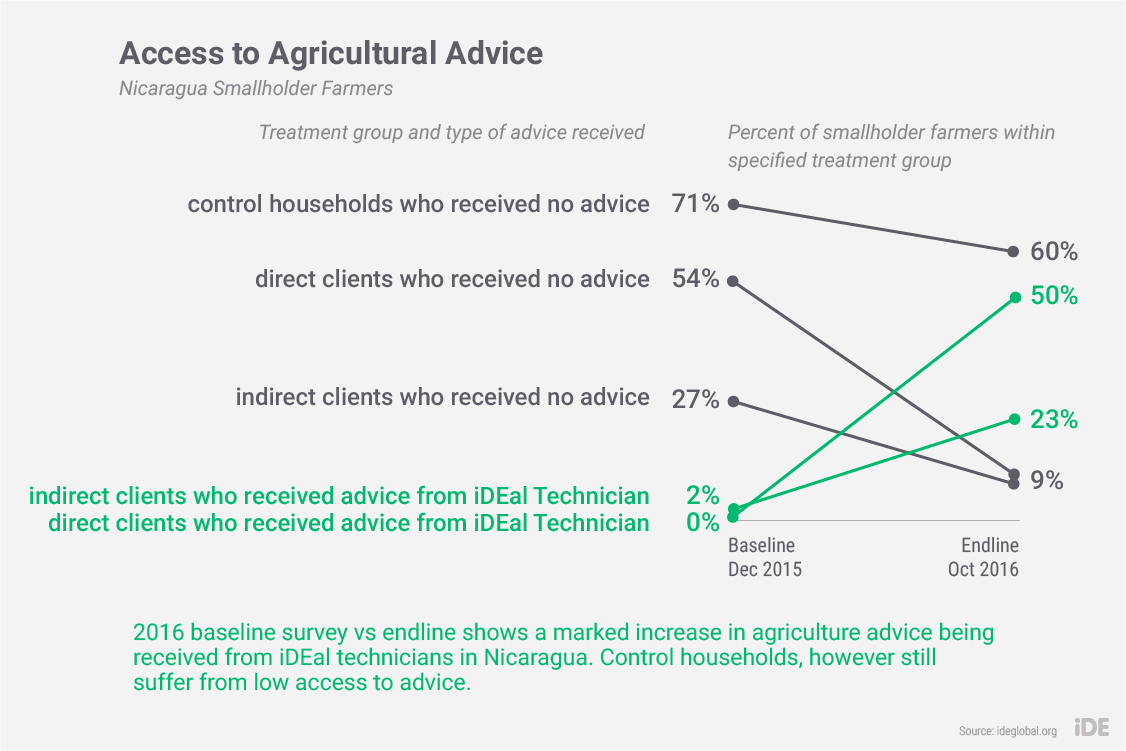Capacity building is necessary for drip irrigation success

Sales
Agents in the field who can provide advice, equipment, and post-sales assistance make the difference for rural farmers.
The catalyst for poor farmers to increase their incomes is more than access to equipment and the financial means to purchase it. Even after technology is obtained, the farmer needs to understand how to install, use, and maintain it correctly. Micro-irrigation technology has a complexity to it that goes beyond traditional farming techniques. For example, the farmer has to learn new ways to judge whether or not a plant is receiving the right amount of water. Based on our experience with the SUPW project, iDE recommends that every drip implementation be complemented by technical service to help train farmers on how to be successful with the technology.
Nicaragua Case Study: Responsible sales techniques
iDEal Tecnologías realized in 2010 that just bridging the market gap with the right equipment was not yielding the desired results. Even though the technology was sized correctly and kept simple, most Nicaraguan farmers lacked the necessary technical skills for cultivating with drip irrigation. For this reason, iDEal established a technical assistance component that has proved to be of crucial importance in increasing adoption and success rates.

iDEal Tecnologías employs a small team of twelve, some of whom are technical agronomists responsible for providing crop management and equipment assistance. The team currently serves approximately 10,000 farmers throughout Nicaragua. Technical support is delivered in two ways: by engaging groups of farmers through cooperatives, associations, and other community initiatives or by visiting and working with farmers individually.
When a farmer expresses an interest in an irrigation system, he or she is visited by an iDEal technician who conducts an assessment of the farmer’s plot to evaluate the availability of water.
iDEal approaches sales ethically. Nadja Schäfli-Kraenzlin, General Manager of iDEal Tecnologías, says, “We prefer to tell the farmer—and here lies in part the social responsibility of the enterprise—that there are no sufficient water sources and that therefore we would not recommend buying an irrigation system since it wouldn’t solve the problem.”
A major finding of the SUPW project was the need to increase farmers’ access to water before promoting drip technology.
If there is a sufficient water supply, the iDEal technician designs an irrigation system based on the farmer’s specific needs and land conditions—defining the necessary equipment components and recommending the appropriate crops for which it should be used—and provides crop management advice if the farmer is unfamiliar with growing that crop.
Evaluation Results on Technician Service
Within one component of an evaluation, we wanted to understand customer access to and satisfaction with iDEal technician services. A broader impact of the iDEal program can be seen when comparing primary source of agriculture advice at baseline and endline.

Direct clients refers to clients who purchased directly from iDEal. Indirect clients refers to clients who received a drip kit that was purchased through iDEal but distributed through a third party. In the time period between baseline and endline:
- Among the direct treatment group those receiving no agriculture advice dropped from 54 percent to 9 percent, while simultaneously those receiving agriculture advice from an iDEal technician dramatically rose from zero percent to 50 percent.
- Similarly, the indirect treatment group drops to only 8 percent of households having no source of agriculture advice, a decline of 19 percentage points since baseline.
- Finally, control households still suffer from low access to agriculture advice. At end-line, 60 percent of control households had no source of advice.

